PostDocs or PostDoctoral Fellows are Young Scientists with a PhD in Sciences, mainly Biological but also in other Scientific Disciplines, besides Medicine, Phy, Chem, Maths & Bio-Engg etc. Getting a PhD leads to further into a semi employee or trainee status called PostDocs, the very first PostDoc was ever created during 1970s, to move into a full term Faculty PostDoc was not necessary then but it is a Necessity now!, too many issues exist for PostDocs, Only Unionization can resolve it.
Home Page
Search This Blog
December 25, 2006
PostDoc Unionization in UC!
Beryl Lieff BenderlyUnited States1 December 2006
The campaign to unionize the postdocs at the University of California (UC), already one of the strangest such sagas in memory, took another unexpected turn last month. After filing for recognition with the state's Public Employment Relations Board (PERB) in September, the union that is trying to organize the UC system's 5800 to 6000 postdocs withdrew its petition in early November.
December 19, 2006
FILTHY CASTE SYSTEM IN INDIAN & AFFIRMITIVE ACTION, ONLY Reservation by CASTE can eliminate the filth!?
Why did our forefathers moot the idea of implementing reservations in Indian education system and employment?
The idea of reservations was mooted to rectify the Indian social system which was far more debilitating than the Indian economic system. For centuries, spanning nearly two thousand years, a majority of India was persecuted, discriminated and ostracized by a minority community on the name of caste. Caste was and is inviolable to all Indians- it was decided two thousand years ago for all generations to come, and nothing one can do to change that. Contrast this with a feudal system- a farmer can become a landlord in 2-3 generations and thus completely change his social status. In a religious system, one can espouse a new religion to escape persecution. But in a caste system, one cannot change his caste and hence will continue to be discriminated for generations. This inviolable and deeply entrenched caste system in India was used to ostracize and oppress a low caste majority by the high caste minority- by keeping lower castes out of all social systems- education, religion, business, administration, employment, etc, and this was carried out systematically through many centuries resulting in what we call as 'social handicap'.
MORE READ HERE:
http://sujaiblog.blogspot.com/
GLOBAL WARMING:- How Ignorant ARE we ??
December 14, 2006
CHINA-the changing face of Science in China
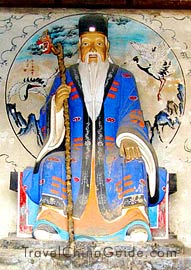
 Science Magazine Article:
Science Magazine Article:Special Feature: Scientific Opportunities in China
Alan KotokUnited States
8 December 2006
When was the last time you saw the word stunning used to describe growth in scientific research spending???
Left: the Yin & Yang
Principles of Chinese science & Medicine
A new report (December 2006) from the Organisation for Economic Co-operation and Development (OECD) details China's new role as a worldwide scientific powerhouse. According to the OECD, in 2006
China will surpass Japan in total research and development spending, making the United States the only nation that spends more. Dirk Pilat, head of the OECDs Science and Technology Policy division, says in a press release, The rapid rise of China in both money spent and researchers employed is stunning.
http://sciencecareers.sciencemag.org/career_development/previous_
issues/articles/2006_12_08/special_feature_scientific_opportunities_in_china/(parent)/68
November 07, 2006
University of California- UC PostDocs Unionization

Beyond these media liars lies the reality, postdocs obviously are working together in this effort to push forward some reformations that will help them respected and paid well besides fullfilling other basic benefits like regular employees. Wherever there is a union effort to bring employees together to fight for their rights, there are bound to be huge anti-union rallys by puppets who are paid agents of union busting activities, especially some paid writers, anti union busting companies news papers and news magazines that work under the disguise that they tell the truth.
It sounds like those postdocs who complained to the university and state labor board seems to be intimidated by peers, colleagues and the so called PIs (people do refer them as Boss, or the PIs refer themselves as Bosses, oh yeah, what boss?). It will not take long enough time for us to discover and learn that this is a terrible act of union busting by the bullies on innocent postdocs, who are intimidated about their career, the present job and their future. The self proclaimed saviors of PostDocs, the national postdoctoral association is a bunch of joke, despite they do not have any record of their own success in helping postdocs to gain better employment package, they keep waging their tails everywhere as if they have any power or ability to bargain, which is pitiable.
What this current director of NPA knows about PIs and Postdoc relations? to bring forth her arguments that this unionization will destroy relationships... No ...it did not!?. What does she know about UCONN Postdocs unionization, they even got the second best contract negotiated successefully and the PIs world did not turn upside down because postdocs got unionized, infact, the respect and life of postdocs after unionization got better and better, because they can afford better child care, because they can afford to have health and dental coverage, because they have access to vacations and leaves as good as a regular employees, because they can now sit with PIs, the University Administration accross the table and discuss the issues and problems and find amicable solutions, whether it is financial matter or work related.
So, what do these union busting people know, except their assumptions and handwavings on innocent postdocs. The worst of these union busting was created by the so called anti-union blogger who posses to the world as though he/she is the greatest soul on earth who fights for the rights, he/she is after all a paid agent of the very union busting agency that might fund NPA. NPA has the tradition of standing in the middle ground, because they cannot stand on their own to institute changes, they do not have any bargaining power, resources or mind set, then how can they help postdocs except for arranging some cynical meetings, conferences and wining and dining in the name of postdoc advocacy. What postdocs need is a voice, a protection and respect, will you ever get this oh NPA?.
But, there is no mention of these acts in the news, only the higher education news article did say some thing along this line that this is not a failure but a good effort that might continue. The other news reports including the one written by the science magazine writer simply assume this unionization is a failure, no it is not a bust you self-imposed postdoc advocates!?. It is just the beginning at UC unionization that will smell the success soon...!
The UAW might have not done enough home work and careful handling of this unionization effort, though the UAW is not the best choice for postdocs and scientists in my view. The UC postdocs need to choose the right union, such as the one we UCONN postdocs affiliated with the AFT or other better unions in California. Neverthless, if UAW came forward to undertake this organizing effort to bring the postdocs together and help them in labor issues, UAWs harwork and interest must be appreciated. As unionizing postdocs is unarguably the most difficult one compared to any other type of employees, to deal with this huge UC postdoc pool is such a huge task and tremendous challenge.
Let us wait for the change of this course, and time will be the best answer.
Here are some of the news, starting from the one I liked "the higher education" news then the others....!!!
http://www.insidehighered.com/news/2006/11/07/postdocs
Nov. 7
Unionizing Postdocs
They’ve been called “the invisible scientists,” and while that’s probably hyperbole, postdoctoral researchers are, on many university campuses, neither fish nor fowl — not yet professors, and yet no longer students, either. Their numbers have risen steadily in recent years with the increase in biomedical and other research spending, to an estimated 50,000 to 60,000, but the length of time that many postdocs spend in this in-between stage has been growing, too. Also on the rise, among some of them, is frustration at low pay, insufficient benefits and the reality that fewer of them may find a full-time faculty or research job at the end of their stint.
http://sciencenow.sciencemag.org/cgi/content/full/2006/1102/1
UC Postdoc Union Fizzles
By Yudhijit Bhattacharjee
ScienceNOW Daily News2 November 2006An attempt to form what would have been the first major union of postdocs in the United States has ended in failure. But supporters of the controversial effort at the University of California (UC) system say they haven't given up.
U.S. postdocs began joining together more than a decade ago to press for improvements in their working conditions and to clarify their ambiguous status on most campuses. But they have traditionally avoided affiliations with labor unions. So it was a shock to many in the scientific community when the United Automobile, Aerospace, and Agricultural Workers Union (UAW) filed a petition in July with California's Public Employment Relations Board (PERB) seeking to represent 6000 UC postdocs based on having collected a majority of their signatures. Some UC postdocs alleged that UAW representatives had collected signatures from many of their colleagues without fully explaining the implications of forming a union. Under state rules, signing up a simple majority of workers is enough to declare victory.
HERE IS THE STATMENT OF PRO/UAW, though the actual reason according to UAW website is the 100 cards lesser for unionization that are signed by, but due to the intimidation tactics and this STRANGELY, MANIPULATED title change of PostDocs does sound like a foul play?
PRO/UAW PRO/UAW PRO/UAW
PRO/UAWThe Union for Postdoctoral Researchers at the University of CaliforniaPostdoctoral Researchers Organize/ International Union, United Automobile, Aerospace and Agricultural Implement Workers of America
CURRENT UPDATE ON PETITION FOR UNION CERTIFICATION:We have withdrawn the petition for certification of the Union that we had filed at the state labor board in July. During the PRO/UAW organizing drive, we did not have a list of all Postdocs working at the University of California and Lawrence Berkeley National Lab. In the course of working through the petition process with the University we learned that 500-600 of the cards we submitted to PERB were from people who identified as Postdocs at the time they signed, but now are not Postdocs and are not on the list, largely due to the transition of Postdoc job titles under APM 390. As a result, we are approximately 100 cards short of majority.PAST UPDATES:
On September 21st, 2006, the Union filed an amended petition with PERB. The amendment excludes Postdoctoral Scholars who are not employees of the University. Please check back here for updates on the progress of the petition.
On August 2, the UC's outside, private counsel filed an objection to our petition at PERB. At no time prior to the filing of these objections did the University ever contact the Union to verify any of the information contained therein. Rather, while there are nearly 6000 postdocs in the University of California system, the University decided to file an objection based on some unsupported and vague claims of a few individuals. Indeed, the University's filing includes only 14 affidavits from postdoctoral fellows. Those individuals allege a range of unclear and general claims that run counter to everything the Union has ever stated about the organizing process, including the clear statements on this very website.
Great news! A strong majority of UC Postdocs statewide have signed up for the Union. The petition has been filed with the state labor board.
So, you have learned the drama so far at the UC campuses. Here is one of the original article about postdocs and their Pathetic status in the academia?/././
May be a good time to refresh your memories with this article:
http://www.jhu.edu/~jhumag/0299web/postdoc.html
October 27, 2006
Eating Curry & Cognitive Power?.

Curry may keep elderly minds sharp
Thu Oct 26, 2006 12:11pm ET
NEW YORK (Reuters Health) - A diet containing curry may help protect the aging brain, according a study of elderly Asians in which increased curry consumption was associated with better cognitive performance on standard tests.
Curcumin, found in the curry spice turmeric, possesses potent antioxidant and anti-inflammatory properties.
http://today.reuters.com/news/articlenews.aspx?type=healthNews&storyid=2006-10-26T161104Z_01_COL657892_RTRUKOC_0_US-CURRY-MINDS.xml&src=rss
October 02, 2006
Genome Dance -Dancing Science & Weslyan University of Connecticut
 “The genome dance project got me thinking that there may be many more untapped ways to make science matter to non-scientists.”Emily Jacobs-Palmer
“The genome dance project got me thinking that there may be many more untapped ways to make science matter to non-scientists.”Emily Jacobs-PalmerAs Ferocious Beauty: Genome draws to a close, the dancers
swirl, surrounded by deep blues, stark whites, and the sounds
of the sea—symbolic of their species' origin.
Emily Jacobs-Palmer finds some of today's political and social attitudes toward science appalling. "I want to live in a world that respects scientists and values our work," says the molecular biology and biochemistry major, a senior at Wesleyan University. To create such a world, however, Jacobs-Palmer believes science must become more accessible—more comprehensible and interesting—to the general public.
It never occurred to her that one path to that goal might be through dance. Then she met Liz Lerman, winner of a MacArthur Foundation "genius" award and founder of the Liz Lerman Dance Exchange. Lerman was spending the year as an artist-in-residence at Wesleyan, while she choreographed Ferocious Beauty: Genome, a dance about the human genome.
http://www.hhmi.org/news/genomedance20060614.html
2006 Nobel Prize in Physiology and Medicine is out!

October 02, 2006 HHMI Investigator Craig C. Mello Wins 2006 Nobel Prize in Physiology or Medicine
The Nobel Assembly at the Karolinska Institute announced this morning that the 2006 Nobel Prize in Physiology or Medicine was awarded to Craig C. Mello, a Howard Hughes Medical Institute investigator at the University of Massachusetts Medical School, and Andrew Z. Fire at Stanford University School of Medicine. The two were honored for their discovery of RNA interference - gene-silencing by double-stranded RNA. http://www.hhmi.org//news/nobel20061002.html
 Cal math grad Andrew Fire wins 2006 Nobel Prize in medicine
Cal math grad Andrew Fire wins 2006 Nobel Prize in medicine
By Robert Sanders, Media Relations | 02 October 2006
BERKELEY – Andrew Z. Fire, the Stanford University geneticist who today (Monday, Oct. 2) shared the 2006 Nobel Prize in Physiology or Medicine, is an alumnus of UC Berkeley's mathematics department, having whizzed through Cal in a mere three years before moving on to graduate school at the age of 19.
http://www.berkeley.edu/news/media/releases/2006/10/02_nobel.shtmlSeptember 15, 2006
Breaking E.Coli News!!!
 Simply Avoid Bagged Spinach for the moment, why? Recent illness and one death due to E.coli infection through bagged spinach. Read the following news....
Simply Avoid Bagged Spinach for the moment, why? Recent illness and one death due to E.coli infection through bagged spinach. Read the following news....Killer E. coli outbreak spreads
Health officials are trying to find the source of a multistate E. coli outbreak and they're warning consumers that bagged spinach may be the source. One person has died and dozens of others have been sickened in the 10-state outbreak. The FDA is warning people not to eat bagged spinach and says washing it won't solve the problem because the bacteria is too tightly attached.
http://www.cnn.com/
Some Tips to Consider!!!
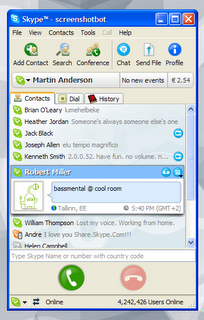
Skype-the whole world can talk for free??.
Sounds like a scam, but this is a real free telephone service, the free service is going to be available till end of this year. All you have to do is to download skype program, call up anywhere within US or Canada free either on a mobile or landline. You can make calls from your PC. I am using right now to make longdistance and conference calls, the voice and lines are terrific, clear and no background noise or interruption. The calls once placed are disturbed in the middle of conversation like those damn paid calling cards or sometime our cell phones, that make croaky frog like noises. You know I go over lots of minutes in cell phone most of the time, then end of miserable to go out to call or add more minutes for a ridiculous, day time robbery by the cell phone companies. A friend of mine once mentioned use skpe, whe she said, I thought very casually about skype, but when I checked the website, I decided to download, it takes just less than two minutes and about 5 minutes, you will be on the phone anywhere. Your Pc or desktop must have microphone, the skype download will help you to initiate calls and several features to use. So, another free service with fine quality and reliable service...skpe. So, when they meant the whole world can talk free, not neccessarily you can take it for granted to call world wide, they do have paid service to call accross the globe, it is too much to ask for a free world wide call. From US, we can all all US and Canada, similarly in every continent, I believe they have free service, like whole of Europe, whole of Asia. But, accross the globe, one must buy some service from skype. Hey...who cares, we can call the whole US and Canada for free.........thanks skype.
Some Tips to Consider!!



I am not realy sure how long this service existed, I found out today that there is something realy free, I used to pay for directory assistance, about a buck and half. But, I checked this company, it is real free directory assitance, they will provide you the telephone number you are looking for in your or any locality. Either call the above number or go online and do the search. I believe that this company might compensate their service expenses by the advertisement that comes after you ask for the number, but you do not need to worry about it, in seconds you will be provided the number you want once you give the city name and name of the business or place. If the automated message can't help you, an attender will respond to you. This is certainly a good service for free....immmmmmmmm there is free lunch in America, though it is very rare???.
http://www.free411.com/index.htm
September 07, 2006
PRO/UAW-University of California????
PRO/UAW
The Union for Postdoctoral Researchers at the University of California
Postdoctoral Researchers Organize/ International Union, United Automobile, Aerospace and Agricultural Implement Workers of
America
So here it is after Uconn Health Center, it is UC...!!
Great news! A strong majority of UC Postdocs statewide have signed up for
the
Update: On August 2, the UC's outside, private counsel filed an objection to
our petition at PERB. At no time prior to the filing of these objections did the
University ever contact the
therein. Rather, while there are nearly 6000 postdocs in the
unsupported and vague claims of a few individuals. Indeed, the University's
filing includes only 14 affidavits from postdoctoral fellows. Those individuals
allege a range of unclear and general claims that run counter to everything
the
statements on this very website. http://www.prouaw.org/
What is the UC graduate association site says about PostDoc unionization???
Postdoctoral Scholars Union Representation Information |
| The following information is intended to serve as a guide for you as the union representation campaign unfolds. Postdoctoral Scholars (Postdocs) play a dual role as fellows engaged in mentored advanced training and as employees or fellows contributing to UCLA's research programs. A policy, Academic Personnel Manual, Section 390 (APM 390) (PDF-175KB), acknowledges the distinct role of UC Postdocs, including a comprehensive benefits package comparable to the plan offered to Faculty/Staff. Under the Higher Education Employer-Employee Relations Act (HEERA), employees have the right to organize and form a collective bargaining unit. The UAW, the union who represents Academic Student Employees (ASEs) at the University (Teaching Assistants, Readers and Tutors), is seeking to form a bargaining unit for postdoctoral scholars and researchers. Union organizers may circulate at the workplace and ask for signatures on a card. You have the right to choose; however, signing the card is the same as voting “yes” for union representation. The information below will help Postdoctoral Scholars and Researchers make an informed decision about union representation. http://www.gdnet.ucla.edu/gss/postdoc/pdunion.htm |
September 01, 2006
STATE OF THE POSTDOC UNION
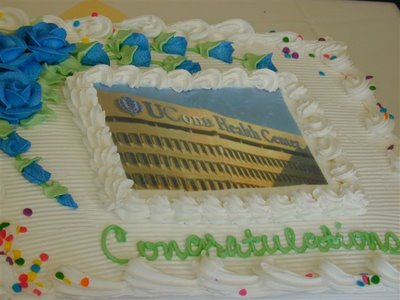
THE GENESIS OF "POSTDOC UNION" @ UCHC
Scientists in the academic areas have various opinions about "UNIONS", especially about PostDoc unions. The views and opinions of unions can vary from either positive or negative perceptions about unions through the observations of the way unions funtion. Some of them agree that unions can help postdocs, some outrightly reject unions and yet another bunch just confused and have no clear idea.
Whatever those thoughts and opinions of the above category of academicians, in truth, all those perceptions and views on union stem from one's personal knowledge about union, one's personal experience or exposures to how unions function, or perhaps due to extremely well informed and throughouly learned thoughts OR due to poorly informed and ill thought feelings about unions.
The election to unionized took place on August 28, 2003 [please see the news in AFT website below]. The resutls were announced end of the day of election, with the majority votes were in favor of union. This 2003 unionization event is the first of its kind, for the first time in the US history, PostDocs at the UCONN Health Center, following three year struggle to make policy changes that they could not ahcieve any changes as beeing a part of PostDoc association. They sought the right path to get things solved in favor of postdocs. The PostDocs Unionized in August 2003 . All the PostDocs worked hard with deligent steps to form a union by joining hands with the local UHP [University Health Professionals], which is an affiliate of the AFT [American Federation of Teachers]. Thereafter, within 6 month, they got the first contract nailed down, making the UCONN PostDocs best paid and best compensated in all respects. The Beautiful Congradulatory Cake above is for the first PostDoc Union contract success, inside the Cake is the most beautiful and elegant UCONN Conn Health Center, a very unique and complicated architexture provides whole beauty to the town of Farmington. I had my lab and computer desk and a microscope room at the fourth floor of this gorgeous building, I can never forget this building, work and all the wonderful experiences of UCONN Health Center, infact, my postdoc productivity was an outstanding one while I was fighting for PostDoc Unionization, both ended in great success.
http://www.aft.org/countmein/index.cfm
UConn Postdocs Vote for Union
Postdoctoral fellows at the University of Connecticut Health Center made history on Aug. 28 by voting for representation by the University Health Professionals (UHP), an 1,800-member AFT Connecticut affiliate. The 138-member unit--possibly among the first postdocs in the country to join a union--took the first step towards better salaries, more respect and greater control over the direction of professional training. Calling the vote a "tremendous victory," AFT Connecticut president Sharon Palmer praised the perseverance and resolve of the unit, noting, "The postdocs have endured much hardship because of their commitment to science. Today they have taken action to gain a voice in the workplace and still maintain their commitment to their work."
The victory culminates a two-year fight for representation. Facing long hours, low wages and a lack of vacation time and sick days, postdoc organizers gathered enough support to file cards in December 2002--at which point the university raised a series of legal challenges to the election.
This week's victory validates the organizers' efforts and demonstrates that legal trickery cannot block the will of the unit members. The university will now have to go through the union in dealing with the postdocs, said UHP president Jean Morningstar, adding that she is looking forward to including the fellows in the union contract. "This election was always about respect and equity," said postdoctoral fellow John Wagner. With the election victory in hand, the fellows are especially eager to address their training in more detail in the contract.
The postdocs typically enter fellowships to gain specialized training that is important in the scientific market, so it is crucial that the right training be offered, says Wagner. [Mark Henson, AFT
 UHP president Gene Morningstar, giving the celeberatory talk, standing besides Gene is Dr.Peter J.Deckers, who is the CEO of UCONN Health Center waiting to give a talk and to congradulate the postdocs, followed by Cake cutting.
UHP president Gene Morningstar, giving the celeberatory talk, standing besides Gene is Dr.Peter J.Deckers, who is the CEO of UCONN Health Center waiting to give a talk and to congradulate the postdocs, followed by Cake cutting.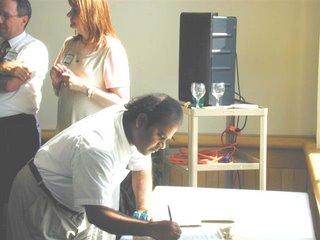
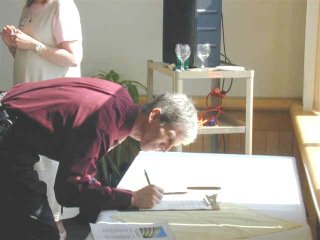
The FIRST POSTDOC UNION:
The First ever postdoc union formed at the Uconn Health Center in 2004, following the unionization within a year a contract was negotiated satisfactorily. Two of the postdoc seen signing the very first contract that was negotiated successefully with the administration. Also seen in the background are UHP union reps and faculty reps.Very Latest PostDoc Union News
Postdoc Unionization Drive Reaches a Climax in California
http://sciencecareers.sciencemag.org/career_development/previous_issues/articles/
2006_09_01/postdoc_unionization_drive_reaches_a_climax_in_california
Beryl Lieff Benderly
United States
1 September 2006
In the annals of the American labor movement, contested unionization campaigns are a common story, often involving downtrodden workers struggling against the concerted opposition of wealthy, powerful, even malign employers. This Labor Day weekend, however, the postdocs on the University of California’s (UC) ten campuses are embroiled in a unionization dispute that violates that time-honored script. The cast includes union organizers who claim to have the support of most UC postdocs, an employer that asserts neutrality, and an unknown number of postdocs who oppose the union and are working to defeat its efforts to organize their approximately 5800 colleagues.
If the union, which is known as PRO/UAW (its official title is Postdoctoral Researchers Organize/International Union, United Automobile, Aerospace and Agricultural Implement Workers of America), has valid signatures from 50%-plus-one of UC’s postdocs as it claims, unionization is automatic under state law. If it lacks 50%-plus-one but has 30%-plus-one, an election will be held to decide the issue. Opponents, however, are urging postdocs who have already given the union their signed consent to fight unionization by formally withdrawing their signatures.
http://sciencecareers.sciencemag.org/career_development/previous_issues/articles
/2006_03_03/the_state_of_the_union/(parent)/158
The State of the Union
Beryl Lieff Benderly
United States
3 March 2006
Two years ago this month, the nation’s first postdoc union, University Health Professionals (UHP) at the University of Connecticut Health Center (UCHC) in Farmington, overwhelmingly ratified its first contract. The pact provided higher pay, improved benefits, and a robust grievance procedure. Supporters of postdoc unions hoped it would launch a national movement. Detractors, meanwhile, feared it would damage postdocs’ relations with their advisers and their career prospects.
To date, neither prediction has come true. The contract quickly became the new normal in UCHC labs, where postdocs are only one category of workers in the long-established union, Local 3837 of the AFL-CIO-affiliated American Federation of Teachers. Right now, UHP and UCHC are conducting their regular quadrennial negotiations to renew the contract that covers postdocs and more than 1000 other UHP members. The talks are proceeding amicably, says UHP president Jean Morningstar, who foresees "no problems" and expects a new agreement to be ratified in the spring. Use the link for full article.......................!!!!?????.
A Union Contract Aimed at Preserving the Postdoc Experience
http://sciencecareers.sciencemag.org/career_development/previous_issues/articles/2940/a_union_contract_aimed_at_preserving_the_postdoc_experience/
Beryl Lieff Benderly
United States
2 April 2004
Last summer, the postdocs at the University of Connecticut Health Center (UCHC) voted narrowly to join a labor union. On 16 March they voted overwhelmingly--80 to 5--to ratify what is believed to be the nation's first collective bargaining agreement specifically for postdocs. Negotiated by UCHC and the union, University Health Professionals (UHP), also known as Local 3837 of the AFL-CIO-affiliated American Federation of Teachers, the pact was hailed by both sides as fair and sensitive to postdocs' special status as both employees and trainees. It grants sharply improved pay and benefits and establishes UCHC's first minimum postdoc salary.
Provisions of the agreement
Unionization and Education: A Faculty View
http://sciencecareers.sciencemag.org/career_development/previous_issues/articles/view/2800/unionization_and_education_a_faculty_
Beryl Lieff Benderly
United States
16 January 2004
University unions are much in the news these days. In early December 2003 an agreement between the University of California and United Auto Workers Local 2865, bargaining agent for 11,000 teaching assistants, tutors, and readers on the UC system's eight undergraduate teaching campuses, narrowly averted a strike scheduled for final exam week. Negotiations also began between the University of Connecticut Health Center (UCHC) in Farmington and University Health Professionals, the American Federation of Teachers local that represents the nation's first unionized postdocs.
The California contract covers only students involved in teaching, said Rajan Mehta, head union steward for the Berkeley campus, where he is a graduate student in math. "Research assistants are not currently organized under our union, or at all." Local 2865, however, is "considering" moving toward unionization of students employed in on-campus research. By a vote of 1628 to 26, members of the statewide union of so-called academic student employees ratified the 3-year contract granting them an immediate and retroactive 1.5% pay increase, future pay hikes tied to faculty raises, and continued complete remission of tuition and fees (including health care fees) despite recent, sharp increases in these charges. The union also won enhanced access to incoming graduate students. In light of California's present financial distress, this is considered a good settlement, Mehta added.
What Will Unions Bring to Postdocs?
Unionized Postdocs Unaffected by Decision Denying Union Right to Brown University Grad Assistants
http://sciencecareers.sciencemag.org/career_development/previous_issues/articles/3150/unionized
_postdocs_unaffected_by_decision_denying_union_right_to_brown_university_grad_assistants/
Beryl Lieff Benderly
United States
6 August 2004
Fifty years ago, on 17 May 1954, the unanimous Supreme Court decision in Brown v. Board of Education vastly expanded the rights of African-American students. The half-century commemorations had hardly ended, however, when, on 13 July 2004, another legal decision named Brown had the opposite effect on another group of students. In a case called Brown University, the National Labor Relations Board (NLRB) ruled that graduate assistants teaching courses and working in labs, libraries, museums, and offices on the private campus in Providence have no right to form a labor union.
Can Labor Unions Work for Postdocs?http://sciencecareers.sciencemag.org/career_development/previous_issues
/articles/2590/can_labor_unions_work_for_postdocs/(parent)/158
Beryl Lieff Benderly
United States
3 October 2003
In August, the postdocs at the University of Connecticut Health Center (UCHC) opened a new chapter in postdoc history and a new round in the debate over how best to improve postdoc working conditions. They voted to join University Health Professionals (UHP), a local of an AFL-CIO-affiliated national labor union, the American Federation of Teachers (AFT). UHP is a long-established bargaining unit at UCHC, representing 1900 of their 5000 employees. With their vote, this medical campus's 138 postdocs came to constitute the newest of UHP's approximately 170 job categories. Led and trained by experienced AFT negotiators, postdoc leaders will soon meet university officials at the bargaining table to work out a contract.............
August 30, 2006
PostDocs-in India??
Will the graduates stay in India to do a postdoc in India is another question.
Keeping Postdocs At Home In India
A vibrant postdoc culture could invigorate India's research climate, but recruiting remains difficult
Amanda Yarnell
| Photo by Amanda Yarnell |
http://pubs.acs.org/cen/coverstory/84/8412India3.html
August 28, 2006
Hello Postdocs-Are you listening??
The following JYI from the website:http://www.jyi.org will explain you about how and when this group of undergraduate started their own scientific journal: "The Journal of Young Investigators". Wow, what a fantastic idea and brilliance of this undergraduates. I am not sure if this postdocs have any such journals for them run by postdocs. In my five year postdoc experience, I hardly seen or heard postdocs getting involved in peer-reviews, manuscript reviews and other editorial related works as experts.
Ever since my first postdoctoral year till date, I got involved in peer-reviews, project proposal reviews, manuscript and even postdocs candidate selection reviews. It is important for postdocs to get involved in such areas that will help them to become better communicators in writing and handling research publication related issues. The PIs are not going to worry about if you know any of these or not, as long as you produce data and prepare the manuscript for publications. While there is serious lack of basic mentoring by PIs in labs, how can you expect PIs support in seeing his/her postdoc doing extraordinary jobs like review process involements, you have to do it yourself and it is your academic life that you must take responsiblities. Here is a lesson for all you postdocs from some bright undergrduate kids/young scientists in the making!?.
The Journal of Young Investigators: An Undergraduate, Peer-Reviewed Science Journal.
What Is JYI?
JYI focuses on providing this introduction to two groups of students - authors and editors. For student authors, JYI recognizes that they are likely to have little experience in scientific writing and in a peer-reviewed publication system. JYI therefore helps guide these students towards more effective scientific communication by encouraging them to publish their research and then helping them to develop their skills. Student editors - the other group of students - receive an in-depth experience in which they are trained as scientific reviewers and engaged in a dialog concerning the methods and future of scientific publishing. Recently, JYI's student editors gathered at the journal's annual editorial conference to discuss scientific publishing and participate in workshops lead by senior editors of Science Magazine. When these JYI authors and editors become professionals, they will be informed and experienced in issues concerning scientific publishing and will be effective communicators and reviewers.
For more information on specific aspects of JYI, please visit our other web pages.
August 21, 2006
The Gazzette!! News & Views
 "THE WORLD IS CHANGING RAPIDLY" this is exactly what the 24 member faculty committee recognized in their recent committee meeting, the meeting was held to discuss issues around education and research, especially to bring out improvements in undergraduate education and research at Harvard. The plan is to enhance the current undergraduate education system with hands on experience. This is a new concept that is making way into education and higher education these days. So, the need to change the teachng and learning aproach of science subjects is finaly reaching the right places, initially it was debated that school children's must be provided chances in hands on experience, it now slowely spreading from the secondary school education level to the undergraduate level courses. Especially considering the amount of interests student will develop by doing few basic scientific experiments or involving in this "the hands on" approach. I believe it is a good idea, because doing a little bit of basic science as part of hands on experiments can promote more interests in science among the students. A preliminary report from a faculty committee makes recommendations about the future of science at Harvard. (Photo © Harvard News Office).
"THE WORLD IS CHANGING RAPIDLY" this is exactly what the 24 member faculty committee recognized in their recent committee meeting, the meeting was held to discuss issues around education and research, especially to bring out improvements in undergraduate education and research at Harvard. The plan is to enhance the current undergraduate education system with hands on experience. This is a new concept that is making way into education and higher education these days. So, the need to change the teachng and learning aproach of science subjects is finaly reaching the right places, initially it was debated that school children's must be provided chances in hands on experience, it now slowely spreading from the secondary school education level to the undergraduate level courses. Especially considering the amount of interests student will develop by doing few basic scientific experiments or involving in this "the hands on" approach. I believe it is a good idea, because doing a little bit of basic science as part of hands on experiments can promote more interests in science among the students. A preliminary report from a faculty committee makes recommendations about the future of science at Harvard. (Photo © Harvard News Office). Here is the article from Harvard Gazzatte!! check the url address....
Science Committee issues preliminary report. Calls for supporting a wide range of approaches to science education and research in Longwood, Allston, and Cambridge
http://www.news.harvard.edu/gazette/2006/07.20/14-sciencereport.html
PostDocs-Best Places to Work
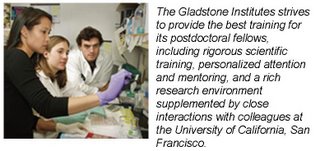
 PostDocs #1. The David J. Gladstone Institutes at the UCSF.
PostDocs #1. The David J. Gladstone Institutes at the UCSF.Interesting to note that J.David Gladstone Institute is picked up by the scientist survey as the best places for postdocs to work, infact the number one among the first places for postdocs. I was in University of California, Berkely campus a couple of years ago for a postdoc meeting, this was the first ever national level postdoc meeting that was organized by UC postdocs and postdoc wellwishers at this place, I found these postdocs are quite outspoken about the problems and issues of postdoc community, they are courageous and forward thinking to bring ideas into action, this is not at all surprising that they got the first place in the survey. I believe that the president and administrators here at the Gladstone are doing a pretty good job in helping and shaping postdocs for their future. http://www.gladstone.ucsf.edu/gladstone/site/positions/section.php?id=756
PosDocs- NewZealand
In the postdocs around section, this page will update news and happenings in NewZeland and the postdoc world in NewZeland.
http://www.frst.govt.nz/fellowships/PostDocs.cfm
The New Zealand Science and Technology Postdoctoral Fellowship Scheme is intended to foster the development of New Zealand's emerging scientists and future science leaders. It complements other Government initiatives to develop a knowledge society which will assist New Zealand to compete successfully as a knowledge economy. Funding is available for postdoctoral fellowships and to provide bridge to employment support.
August 17, 2006
LATEST POSTDOC NEWS!!!
UAW Petition Filed with the University of California
Advocacy | Grievance | Society | UnionAttention UCLA Postdoctoral Scholars:
The United Auto Workers (UAW) has filed a petition with the University of California for exclusive representation of postdoctoral scholars on all ten UC campuses and the Lawrence Berkeley National Laboratory. As a condition of the Public Employment Relations Board (PERB), the attached notice must be posted conspicuously on all employee bulletin boards in each facility where postdoctoral scholars are employed.
http://www.postdoc.ucla.edu/node/810
**NIH-NRSA fellowship is added with extra cash for New Medical Health insurance coverage??
http://grants.nih.gov/grants/guide/notice-files/NOT-OD-06-090.html
Notice of New NIH Policy for Funding of Tuition, Fees, and Health Insurance on Ruth L. Kirschstein National Research Service Awards
Notice Number: NOT-OD-06-090
Key Dates
Release Date: August 4, 2006
Issued by
National Institutes of Health (NIH), (http://www.nih.gov)
The NIH announces a change in policy for funding of tuition, fees, and health insurance costs for NRSA Postdocs. The new policy applies to new and competing-continuation (renewal) NRSA institutional research training grants (T32, T34, and T35) beginning in fiscal year (FY) FY 2007, and competing individual fellowships (F30, F31, F32, and F33) awarded beginning in FY 2007. It also applies to institutional research training grants that received competing awards in FY 2006. For this cohort, the FY2007 non-competing awards will be issued recalculating budget categories to reflect this new policy.
August 15, 2006
PostDoc Activities & Organizations
1. Baylor Postdoctoral Association
http://www.bcm.edu/pda/international.html
Baylor College of Medicine is one of several research centers where the postdoc community is quite big, lots of postdocs work at Baylor. They have got this sense of helping each other through this association. PostDocs will be able to find information related to visa, travel, jobs and other social activities using this site.
2. Brown University Postdoctoral Association
http://www.brown.edu/Administration/bupa/news.html
The association in short called BUPA?. Again, the site provides assistance to postdocs for housing in Providence, RI. Benefits, visa, international student relations and other postdoc related information. The following report and points from BUPA's recent meeting will tell the story that postdocs are struggling to fix issues around benefits, salary, leaves and more.
1. Clarify Brown’s definition of a postdoc. The two most common titles are postdoctoral research associate and postdoctoral fellow. The university has no consistent method for defining postdocs across all departments. Also, postdocs should be promoted to the title of Senior Postdoctoral Research Associate after three years, and to Research Scientist after six years.
2. Provide equal benefits to all postdocs. In general, postdoctoral research associates are university employees and receive full benefits as employees. Postdoctoral fellows generally bring their own funding, and thus are not considered Brown employees. Therefore they do not receive university benefits. This system leads to inequities within departments and labs, and unintentionally punishes postdocs for seeking independent funding. The report recommends that the University provide Fellows access to health and dental benefits at the same individual costs as they are provided to associates. The additional cost must be provided by the department, program, or the institutional allowance of the individual’s grant. Implementing this will be quite difficult, requiring lots of work to assure that the changes are legal and in accordance with tax regulations.
3. The report does not recommend implementing university-wide salary minimums.
